

KENNESAW, Ga. | Sep 11, 2024
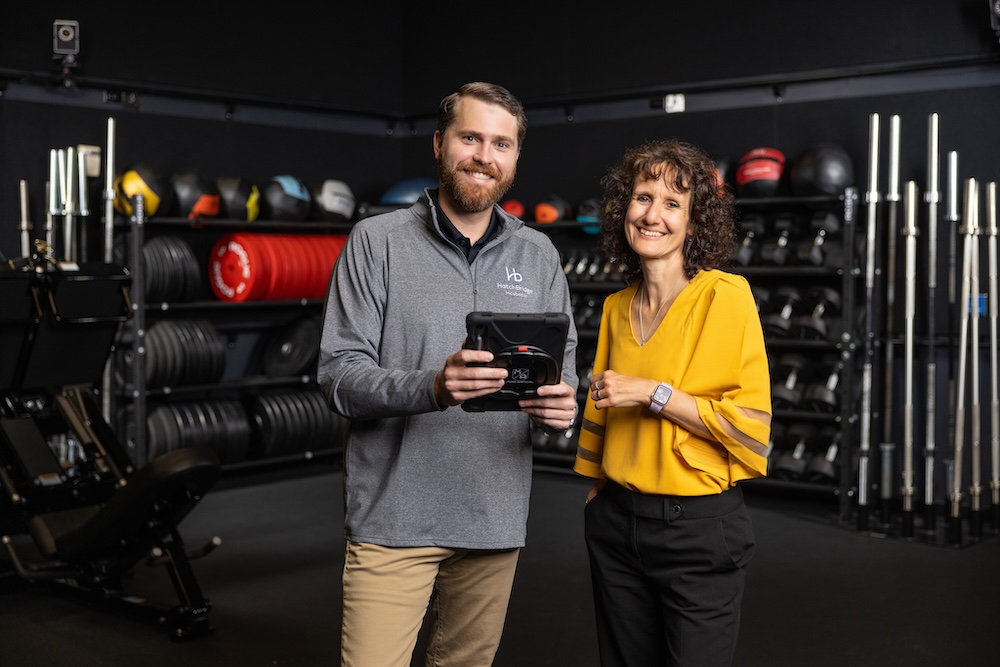
Scientific discovery is an everyday pursuit at Kennesaw State University – research that is making lives better. Work toward the scenarios described above, as well as many others, is already well underway.
“Kennesaw State has a strong commitment to collaborative research growth and innovation,” said Karin Scarpinato, vice president of research who leads KSU’s Office of Research.
Since her arrival last summer from Florida Atlantic University, Scarpinato has worked with researchers and leaders in all of Kennesaw State’s colleges to build new initiatives designed to increase research activity and therefore discoveries to benefit the region, state and world.
The Office of Research – launched at KSU 15 years ago – has as one of its functions to make getting a research project started easier for KSU faculty. It can help them find grant funding, as well as collaborators both inside and outside KSU from multiple disciplines. It can help with the process to secure patents, and bringing invention from the laboratory to the marketplace, where the public benefits from research discoveries.
Community effort
A major initiative launched by the Office of Research in recent months has been the creation of research communities, led by faculty research champions.
The aim is to unite researchers from diverse fields and foster collaborative efforts to address significant societal challenges. By discussing each other’s projects and interests, research community members share insights and knowledge of resources to help advance each other’s research, and they may find new areas to explore together.
So far, four research communities have been formed, focused on these general areas of inquiry:
Faculty Research Champions are spearheading each of these initiatives and will support the formation of research teams, communication of funding opportunities, facilitate the recruitment of external partners, and assist with communication within the communities, Scarpinato said.
Focus on health
During a spring meeting of Health and Wellness research community members, Valentina Nino, an assistant professor of industrial and systems engineering, spoke about a project exploring using wearable technology to help quickly diagnose and monitor emergency room visitors to create better outcomes for patients and reduce wait times.
Nino described an incident in which a person went to a hospital emergency department and was assessed as someone who was not in immediate danger and could wait for treatment. A couple of hours later, the patient’s name was called to go into the treatment area. After the name was called a second time and the person did not report for treatment, emergency workers assumed the patient had left. Instead, the patient’s body was later discovered in the emergency department, sitting in a wheelchair.
“This is just one example of things that can happen in emergency departments,” Nino said. “We believe we can create a system to prevent outcomes like this.”
What Nino and her fellow researchers envision is a wearable technology that can monitor an emergency department patient as they wait for treatment. If a patient then experiences a sudden dangerous downturn in their vital signs, emergency personnel would be alerted, and the person could receive immediate treatment.
The research team is now looking for emergency department doctors, nurses and others to collaborate in testing the system.
Another promising research project that falls into the Health and Wellness area is one called GlucoCheck being led by research champion Maria Valero, an assistant professor of information technology.
GlucoCheck is a device to be used in the treatment of diabetes that uses light shown through a finger or an ear lobe instead of the traditional constant finger prick to determine blood sugar level. Beyond that, Valero’s students have created a mobile phone app, as well as an interface with Amazon’s virtual assistant Alexa that can give GlucoCheck users prediction of their sugar level and information on how to mitigate glucose spikes.
The U.S. Centers for Disease Control and Prevention estimate there are more than 38 million Americans who have diabetes, while the World Health Organization estimates the number worldwide to be more than 422 million. A fast, accurate and painless way to monitor blood sugar levels would be a big advance in the treatment of diabetes, Valero said.
In yet another area of emphasis in the Health and Wellness research community, Nazmus Sakib, an assistant professor of information has shared his idea for a new research project for which he is seeking funding.
Sakib envisions an artificial intelligence powered mental health application that parents can use to help their young children develop healthy habits by keeping them from spending too much time on phones, tablets or watching television.
Called “ScreenSafeFuture,” it would monitor the screen time of children in real time and also offer parents healthy alternatives to screen use. The system focuses on very young children from infant to toddler stage, Sakib said.
During a period of networking for the group, Sakib was able to consult with Chris Cornelison, associate vice president for innovation and commercialization and director of intellectual property development with the Office of Research. If Sakib’s work after research, development and testing results in a successful application, Cornelison’s office can help him bring it to market.
In addition to Valero, the Health and Wellness research community is led by champions Weiwei Chen in the Coles College of Business and Brian Kliszczewicz in the Wellstar College of Health and Human Services.
While KSU’s research communities have only recently been launched, they are coming together quickly, Scarpinato said.
“Our internal research communities are rapidly progressing, forming dedicated teams and advisory boards,” she said. “Their online presence has been launched recently, providing broader visibility to their initiatives.”
More on the horizon
Much like research itself, the work to discover innovative ways to facilitate research is never-ending, and the research communities are just one of a number of efforts underway to increase Kennesaw State’s impact through innovation, Scarpinato said.
“We are expanding our collaborative horizon by joining forces with external partners like the University of Georgia,” she said. “Together, we're drafting innovation-centric grant proposals and exploring ecology/agriculture collaborations, leveraging our Field Station's capabilities.”
Office of Research leaders have also had discussion about possible collaborations with Georgia Tech Research Institute, Georgia Southern University, industry partners and more.
“These are strides in affirming KSU’s commitment to collaborative research growth and innovation,” Scarpinato said.
This article also appears in the current issue of Summit Magazine
– Story by Gary Tanner
Photos by Matthew Yung
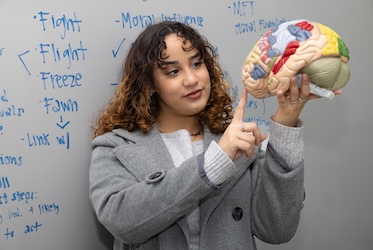
Kennesaw State student explores how trauma affects decision-making
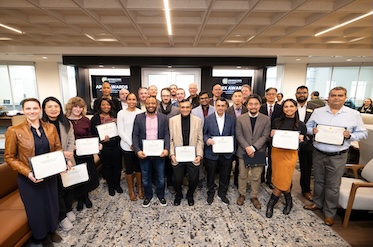
Top researchers recognized for achievements at Apex Awards
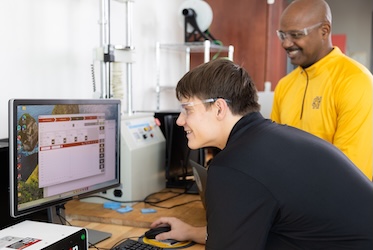
Kennesaw State team innovates stronger 3D-printed structures through advanced simulations
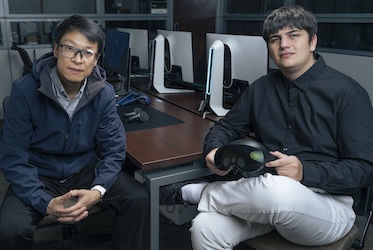
Student, faculty researchers explore how AI can improve STEM learning through virtual reality
A leader in innovative teaching and learning, Kennesaw State University offers undergraduate, graduate, and doctoral degrees to its more than 51,000 students. Kennesaw State is a member of the University System of Georgia with 11 academic colleges. The university's vibrant campus culture, diverse population, strong global ties, and entrepreneurial spirit draw students from throughout the country and the world. Kennesaw State is a Carnegie-designated doctoral research institution (R2), placing it among an elite group of only 8 percent of U.S. colleges and universities with an R1 or R2 status. For more information, visit kennesaw.edu.